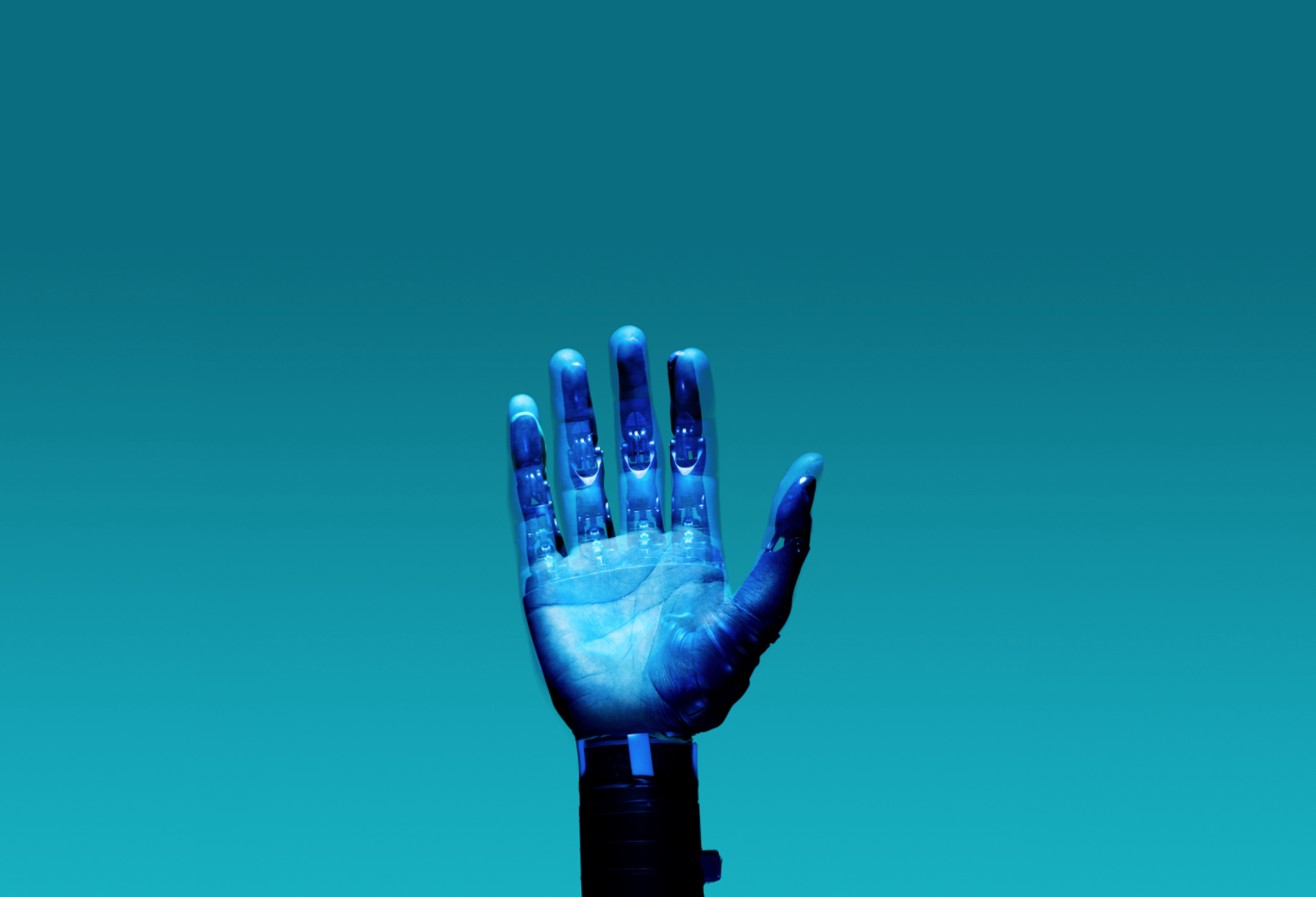
Technically Human is a podcast about ethics and technology that
asks what it means to be human in the age of tech. Each week, Professor Deb Donig interviews industry leaders, thinkers, writers, and technologists, and asks them about how they understand the relationship between humans and the technologies we create. We discuss how we can build a better vision for technology, one that represents the best of our human values.
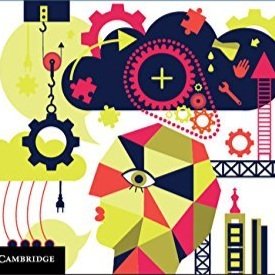
Technically Human Rights: How technologies are changing the state of human rights
Welcome back to another episode in the “22 Lessons on Ethics and Technology for the 21st Century” series. In this episode of the series, we take a deep dive into the history of how technology intersects with human rights. My thinking on ethics and technology has human rights at its foundations, so I was particularly excited to sit down with Dr. Jay Aronson, one of the leading thinkers on science, technology, and human rights. We explore how technologies have coincided with the development of human rights in ethical and political terms, and we look at the role that technologies play in our contemporary moment in enforcing human rights--and violating them.

The Global Technological Imaginary: Sci-Fi, Tech, and the Ethics of Representation
Welcome back to a brand new season of “Technically Human!” Today’s episode features another conversation in the "22 Lessons on Ethics and Technology" series.
I teach science fiction as a way of thinking about ethics and technology, because I fundamentally believe that before we can build anything, we first have to imagine it. Science fiction is at the core of so many of our technological innovations, offering us utopian visions of how the world could be, or how our values might be captured and catapulted by new technologies—or dystopias about how technology’s promise can go terribly, horribly wrong. So I was thrilled to talk with Professor Lisa Yaszek, one of the world’s leading experts on science fictions, for this episode, about the role of science fiction in creating a global imaginary about technology that crosses centuries, continents, and cultures.

Zoom Fatigue: Distance Learning and Social Engagement in the Age of Social Distancing
Welcome back to another episode of the 22 lessons on ethics and technology series, in a conversation with Dr. Judith Kalb about the growth of online education and technologies of virtual meeting.
How have our human interactions changed with the introduction, and normalization, of online meetings? How have virtual technologies transformed our relationships to one another, and to the information we exchange when we meet? What are the ethics of learning and the transformation of what it means to learn, to teach, and to interact with our colleagues, students, and bosses online?
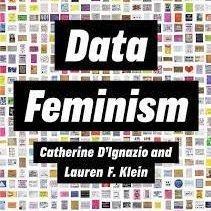
Data Feminism
Welcome back, for another episode of the “22 Lessons on Ethics and Technology” series. In this episode, I speak with Dr. Lauren Klein about the complicated relationship between data, race, and gender, and what she calls “data feminism.” What is the relationship between data visualizations, representation, and construction of categories—and difference? How have visualizations constructed race and gender? And how can a feminist data science approach help in constructing a more just and equal world?
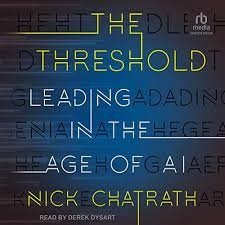
The Threshold: Leading in the Age of AI
In this episode, I speak with Dr. Nick Chatrath about the crucial role that leadership plays in the future of AI development. We talk about organizational culture, the very human leaders driving technological production, and why human independent thinking matters more than ever, in the age of artificial intelligence.

The Ethics of the Blockchain
Today’s episode features a conversation with Medha Parlikar, about the ethics of the blockchain and cryptocurrency. We talk about the vision of what cryptocurrency could be, what dangers it might pose to our values, and what the future of cryptocurrency might look like in a web-3 world.

Computing Women: Gender Disparity in STEM Education
We’re back for another installment of the “22 Lessons on Ethics and Technology” special series. In this week’s episode of the series, I am joined by Dr. Mar Hicks. This episode tells the story of labor and gender discrimination in the tech industry. Dr. Hicks explains the historical background of gendered technological production that has influenced the development of computing. In her historical outline, she explains that while women were a hidden engine of growth in high technology from World War II to the 1960s, American and British computing in the 1970s experienced a gender flip, becoming male-identified in the 1960s and 1970s. What can this history teach us about the need for gender equity in technological production now? And what are the consequences of continued gender inequity for our future?
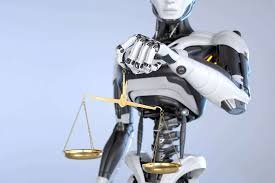
Human First AI
In this week's episode, I am joined by Dr. Christopher Nguyen. We talk about the emerging concept of "human first AI," and the changing terrain of both AI ethics, and AI development. We imagine what a human-first approach to AI might look like, and what gets in the way of developing an ethical approach to AI in the tech industry.
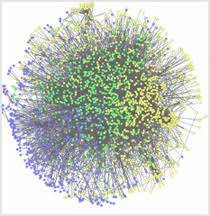
Science for the 21st Century: Understanding Systems Biology
This week, I turn my mic over to a guest host, for an interview with Dr. Jared Roach about the growing field of systems biology, an interdisciplinary field of study taking over the biological sciences, focused on complex interactions within biological systems. How can we update the study of biology for the 21st century? How can computational and mathematical analysis help us understand biological systems? And what can we newly see or understand about ourselves if we the way that complex networks interact within our bodies?

The Diversity Challenge: Race, gender, and how the histories of medicine and technology got made
In this week's “22 Lessons on Ethics and Technology" special series, I sit down with Dr. Evelynn Hammonds to talk about how race and gender have shaped the histories of science, medicine, and technological development.

The Ethic of Life
This week, we continue our “22 Lessons on Ethics and Technology series” with a conversation with Dr. John Basl about how our relationship with tech is changing what he calls an “ethic of life, an ethical perspective on which all living things deserve some level of moral concern.

Socio Paths: Navigating the terrain of sociotechnical systems
In this episode of "Technically Human," I host Chris Leong and Maria Santacaterina for a conversation about the growing pervasiveness of sociotechnical systems. You may not know the term "sociotechnical system," but if you've booked a flight online, tried to reach an agent on the DMV's hotline, or tried to contact your congressperson, you almost certainly have interacted with one of them. How have sociotechnical systems changed the way we access services, the way we spend our time, and the way we interact with one another? What are the benefits--and the consequences--of living in a world increasingly organized and processed through these systems?

Outside Voices: Transcisciplinary Approaches to Ethics and Technology
Welcome to another interview in the "22 Lessons in Ethics and Technology" series! In this episode, I speak with Dr. Pavel Cenkl, about the need for intellectual diversity and multidimensional approaches to technological solutions to the major problems of our time. Professor Cenkl discusses how the major problems we face require that we bring together people trained in a wide variety of approaches. Focusing on environmental issues--climate change, ecological destruction, and the possible proliferation of future pandemics--we consider how ethical approaches to technology depend on thinking across boundaries of ideas and including voices across a variety of institutions, cultures, and experiences.

The Age of Posthumanism
Welcome to our 3rd episode of the "22 Lessons on Ethical Technology" series! We will be releasing new episodes in the series every first and second Friday of the month through the duration of the series. In this episode, I sit down with Dr. N. Kate Hayles, one of the founding theorists of posthumanism, a key term to understanding the changing and dynamic relationship between humans and machines in the digital age. What is the role of the Humanities in understanding our relationship to technology? How have our technological innovations have changed the nature of “the human?" And what is the future of the human relationship to our machines--and to our understanding of ourselves?

What it Means to Care: Ethical medicine in the age of tech with Dr. Robert Pearl
In this episode of "Technically Human," I give my mic over to two guest hosts, David Geitner and Roman Rosser, to interview Dr. Robert Pearl about the intersection between tech, medicine, and our health. Dr. Pearl answers questions about the way that technologies are radically reshaping health care; the hosts ask questions about bias in medicine; and the group discusses the ways in which our current system fails to treat us, well, WELL.

The age of privacism
In this episode, I sit down with Dr. Michael Huth to talk about the ethics of data collection, privacy, and the new age of “privacism.” We talk about his new platform, Xayn, we discuss what it looks like to build a company based on ethical principles like privacy and user autonomy, and Michael explains why we should care about our privacy online.

From Tech to Action: Are our technologies changing our ethics?
Welcome to our very first episode of the "22 Lessons on Ethical Technology" series! In this episode, I sit down with Dr. Herman Tavani to introduce some of the foundational principles of ethical technology, particularly in computing and digital contexts. We focus on how the current need for an ethics of technology developed, and the debates and key moments that gave rise to the current debates about ethics and technology.

Defining ethical technology: Urgent debates, global dilemmas, and key definitions
Welcome to our very first episode of the "22 Lessons on Ethical Technology" series! In this episode, I sit down with Dr. Herman Tavani to introduce some of the foundational principles of ethical technology, particularly in computing and digital contexts. We focus on how the current need for an ethics of technology developed, and the debates and key moments that gave rise to the current debates about ethics and technology.
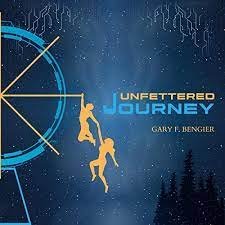
Gary Bengier’s Unfettered Journey
In this episode of “Technically Human,” I interview Gary Bengier, the author of the award-winning science fiction novel, Unfettered Journey. We talk about the relationship between his prior work as a technologist, and his current career as a writer of science fiction; we talk about the relationship between technology, philosophy, and science fiction; and we talk about the possibility of making moral choices in a world governed by deterministic technologies.
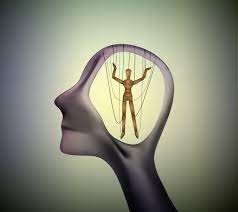
Command Code: Ethics, technology, and the debate about free will
In an age of algorithmic predictions, with tech companies and digital technologies that can anticipate and pinpoint our every move, can we still have free will as we know it? What happens to free will when our genetic technologies can plan what we’ll look like, how physically able we will be, and even who we’re likely to become? How free really are our actions when where we decide to eat is influenced by review sites that promote paid sponsors; where how we spend our money is dictated by data giants who tell us what we should like; and where even who we love is determined by algorithms on dating apps? How do we understand freedom of thought, and action, in an age where our biotechnologies not only record, but also predict and proscribe, how thoughts move around in our mind, and how they become actions? To understand these questions, I turned to David Lawrence, the author of “Are We Biochemical Robots.” Here’s our conversation.
